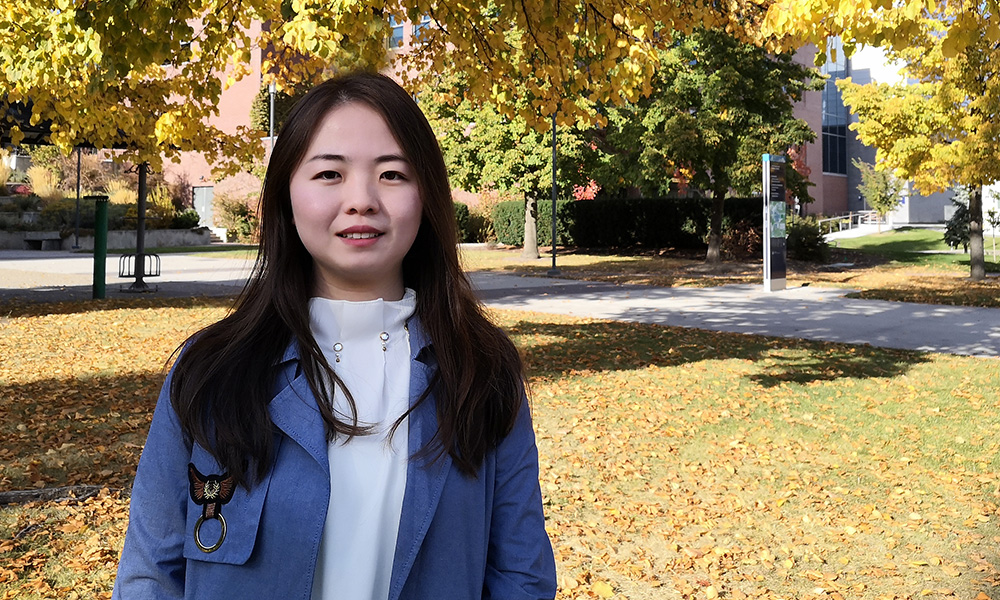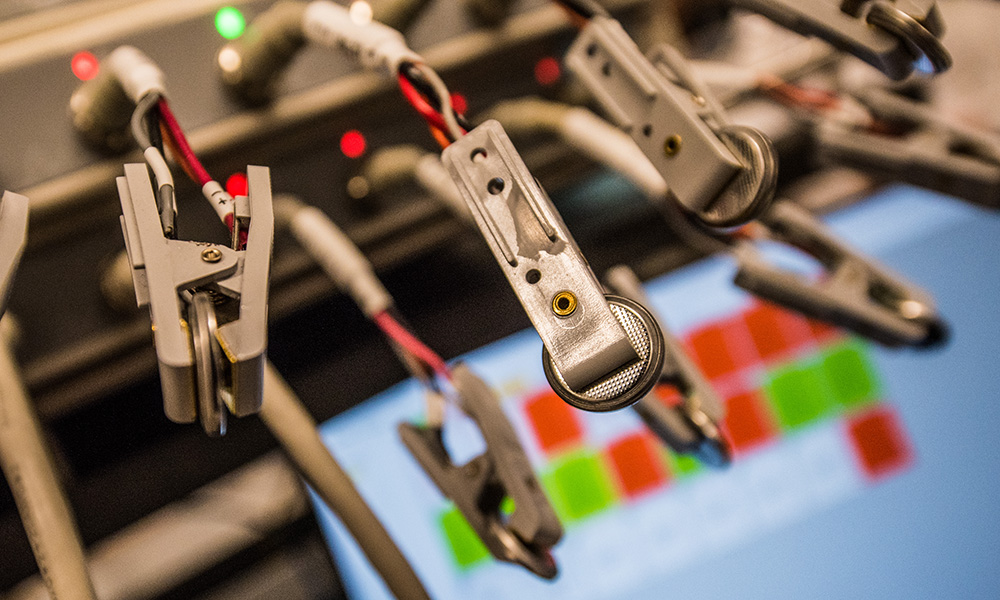Engineering & Technology, People, Research, Student Profile
Yue Zhang is part of a new energy frontier
December 5, 2022

About
Name
Yue Zhang
Role
Doctoral student
Faculty
Applied Science
School
Engineering
Campus
Okanagan (Kelowna, BC)
Education
Master of Engineering, Shanghai Jiao Tong University
Bachelor of Engineering, Jilin University
Hometown
Jincheng, Shanxi Province, China
“UBCO turned out to be the perfect place for me, and I hope to be an instructor here one day, passing on my knowledge and skills, and encouraging more people to enter the field of battery research.”
WHEN ASKED WHAT SHE WANTS TO DO AFTER GRADUATION, Yue Zhang’s response is simple: “I want to do something impactful. That’s my plan.” And so far, Zhang’s plan is on track; working alongside her doctoral supervisor Dr. Jian Liu, she’s researching the next generation of rechargeable batteries for consumer electronics like cellphones and laptops—all the way up to electric car batteries. These batteries are not only important to further developing a more sustainable, circular economy, but could also be an important step toward global decarbonization.
According to Zhang, today’s batteries have three main problems: safety (caused by flammable liquid electrolytes), cost and power density (or performance). Zhang and Dr. Liu—in partnership with UBC Vancouver, Fenix Advanced Materials, NSERC, the Pacific Institute for Climate Solutions, Canada Foundation for Innovation, BC Knowledge Development Fund and Mitacs—hope to change this with an all-solid-state recycled tellurium-based rechargeable battery.
“Initially, this wasn’t a popular battery choice because it’s a semi-metal that needs to be recycled into a high-purity metal to be used for rechargeable batteries,” Zhang says. “We thought if we could combine the current lithium sulphur battery with recycled tellurium, some kind of change in chemistry would result.
“We found the resulting battery had an amazing improvement in performance; our early estimates see an energy density double or even triple that of lithium sulphur batteries.”
While Zhang emphasizes that more research is required, the early findings are certainly promising in a field where reserves of some rare earth minerals used in electronic batteries could run out in less than 100 years. The demand for lithium, for example, is expected to grow exponentially over the next few decades, putting the valuable element in short supply and high demand. Expertise in materials, mechanical and chemical engineering will be required to devise an interdisciplinary solution to the complex problem posed by moving away from fossil fuels. With gasoline prices creeping toward $2 per litre in much of Canada, there’s a sense of urgency and importance to the research.

These tellurium-boosted lithium-sulfur batteries are being tested for their lithium-ion storage and cycling stability, as well as their internal reaction mechanism. Researchers discovered that the new battery technology contributes to more power, meaning extended mileage for electric vehicles.
“We need to explore several diverse avenues to find a solution. For example, can recycled tellurium be successfully incorporated with elements like sulphur, which has a higher energy density and produces better batteries? Or maybe we need some additives, or something to refine the sulphur chemistry to solve the bottlenecks of lithium sulphur batteries,” Zhang adds. “There are still some challenges to address, but we believe we can solve these climate-related problems.”
As for the future, Zhang is excited by the potential of her research to impact the general population. “Although we’re in the lab, we’re producing something that can be used by industry, which ultimately makes the research accessible to people in daily life. I’m fascinated by the interdisciplinary nature of my research and I get a sense of achievement from that.”
It’s something she says she couldn’t have experienced elsewhere. “UBC is a top university in the world, so when I saw Dr. Liu had an opening in his lab, it was my top choice. I’ve lived in China for over 20 years and I wanted to have a new experience with new scenery, where I can connect with other students and professors from different countries.
“UBCO turned out to be the perfect place for me, and I hope to be an instructor here one day, passing on my knowledge and skills, and encouraging more people to enter the field of battery research.”